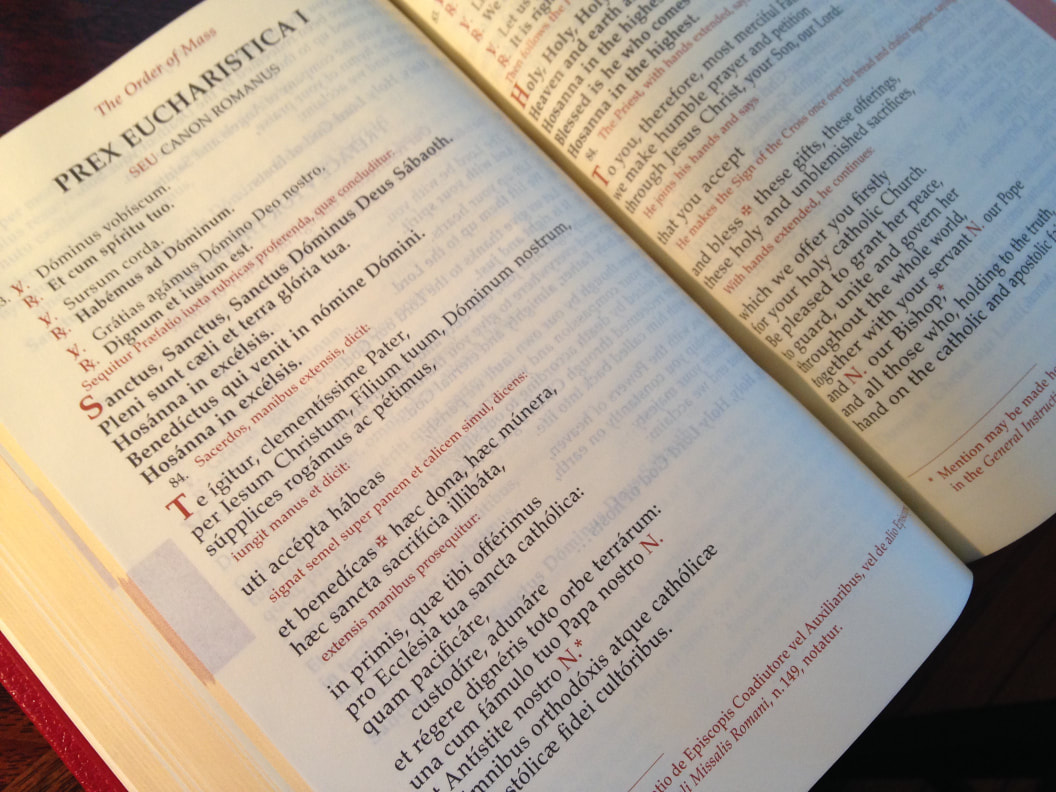|
Latin is no longer the native language of any one people, but it still has many uses. It’s the language of science, and particularly of medicine and biology, it’s indispensable for studying the history and literature of Europe, and, of course, many English words come from Latin, like domestic, picture, and even the world me. However, probably the most famous use of Latin is in the Catholic Church. Latin is still the official language of the Holy See and of the Vatican, the Pope’s encyclicals, documents of ecumenical councils (like Vatican II), and many official Church pronouncements are all first published in Latin. The official versions of our liturgies, like the Mass and baptisms, are in Latin and translations must be approved by Rome before they can be used. Finally, there are many Church documents, writings of Popes, Church councils, and Church synods, that have simply never been translated, simply because there hasn’t been a big enough need to do so.
Some people will tell you that the Church gave up Latin at the Second Vatican Council, but that’s not what the council actually said. In Sacrosanctum Concilium, published in 1963, the Fathers of the Council said, “The use of Latin, with due respect to particular law, is to be preserved in the Latin Rites,” and, “Nevertheless care must be taken to ensure that the faithful may also be able to say or sing together in Latin those parts of the Ordinary of the Mass which pertain to them” (SC, 36 and 54). Pope St. Paul VI, who was the pope during the end of the Council, said, “The Latin language is assuredly worthy of being defended with great care instead of being scorned; for the Latin Church it is the most abundant source of Christian civilization and the richest treasury of piety…we must not hold in low esteem these traditions of your fathers which were your glory for centuries” (Sacrificium Laudis). Most of the earliest Christians spoke Aramaic and Greek, and the earliest Masses would have been celebrated in those languages. The Bible is written in Hebrew and Greek. Latin, though, was the language of Rome, and Rome was the center of the western Church. The priests and monks who converted most of the world came from Rome and brought Latin with them. They found that the languages of the people they went to convert didn’t have words to convey the language of the Mass, so the Mass stayed in Latin while the people were taught in their own languages. The Church kept Latin because of its beauty, its universality, and its stability. It is stable because it isn’t anyone’s native language. English changes as we need to express new words and ideas, and the meanings of words change over time. Latin doesn’t change, because no one speaks it as their native language, so it helps to preserve the meaning of the teachings of the Church. It is also the same everywhere. Theologians in England, France, Spain, and Italy grew up speaking different languages, but they would have learned the same Latin in school, so they can communicate with each other. Latin is also beautiful. Many other languages are beautiful, too, but the cultural history of the Church, its music, literature, and poetry, is mostly in Latin. Having Mass in the language that we speak every day has allowed us to understand the prayers that the priest is praying and to understand what is happening, but hearing the Mass in a language we don’t speak every day, especially Latin, reminds us that the mass isn’t ordinary and normal, but extraordinary and mystical. I’m not saying that you should start going to Mass in Latin every week, or that we’re going to switch to Latin Mass at Lourdes, but I am encouraging you to experience Mass in Latin at least sometimes, to be reminded that something amazing is happening in front of you.
0 Comments
Your comment will be posted after it is approved.
Leave a Reply. |
AuthorFr. Bryan was pastor of Our Lady of Lourdes from July 3, 2017 to June 2022. Categories
All
Archives
June 2022
|

 RSS Feed
RSS Feed